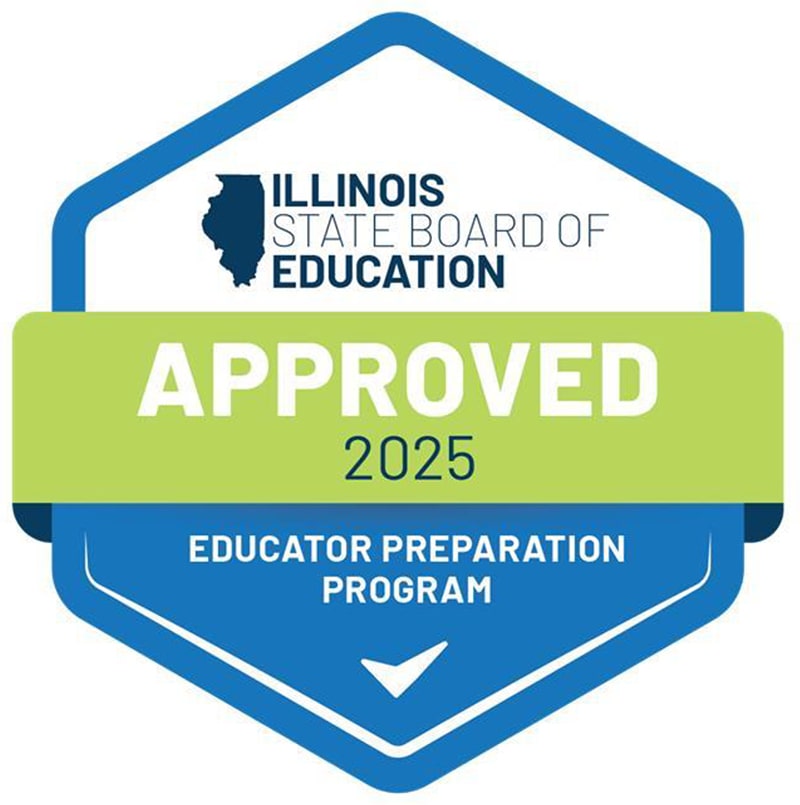B.A. in Secondary Education | Social Science Education (9-12)
Inspire a Lifelong Love of Learning
The Secondary Education program at Saint Xavier University prepares candidates to teach grades 9-12. Through student teaching experience, fieldwork observation and other opportunities to apply theory to practice, candidates will engage in an interactive and dynamic learning experience that will enable them to deliver a high-impact instructional experience to their future students. The Secondary Education Program integrates courses and field experiences that will prepare you to teach in a variety of educational settings, including public and private schools. As a secondary education major, you will develop an in-depth understanding of your content area. Additionally, students may develop advanced skills, including communication, patience, creativity, enthusiasm, confidence, dedication, conflict resolution, organization, classroom management, time management, critical thinking, leadership, and teamwork.

Why Earn Your B.A. in Secondary Education?
The education profession is one of the most rewarding and fulfilling careers. Teachers serve as the cornerstone of a student's educational journey through their development as they become critical thinkers and problem solvers.

About the Program
Inspire the next generation to explore the world's past, present, and future with a degree in Social Science Secondary Education. Prepare to teach dynamic subjects like history, politics, and sociology while helping students uncover the richness of cultural diversity, the power of individual identity, and the complexity of global connections. Through this program, you'll guide learners to analyze the forces shaping societies, from climate and natural resources to the interplay of science, technology, and social systems. Equip students with the tools to engage with democratic ideals and civic practices, empowering them to lead meaningful change in an interconnected world. Start your journey to become a teacher in social science education today!
High-impact practices for Social Science Secondary Education include immersive field experiences in diverse classrooms and collaborative research projects on cultural, political, and historical topics. Students also engage in a seminar equipping them to connect academic theory with real-world teaching and leadership.
Prepare to inspire the next generation as a leader in Social Science Secondary Education by mastering the art of creating dynamic, real-world lessons in history, politics, and sociology. This program equips you with cutting-edge teaching strategies and hands-on experiences, empowering you to shape critical thinkers and engaged citizens who will make a difference in their communities.
At the undergraduate level, Saint Xavier University is one of the seven largest providers of teachers in Illinois. Saint Xavier University's Education Division has a long and successful history of preparing students for careers in teaching with a curriculum that guides teacher candidates to become scholars, lifelong learners, leaders, and reflective practitioners. Rooted in the values of the Sisters of Mercy, our mission emphasizes compassion, service, and social justice. As a student in our Education Division, you'll be inspired to integrate these values into your teaching practice, making a meaningful impact on your students and community. You'll learn to educate with empathy, advocate for equity, and lead with a heart committed to service.
SXU offers a variety of education endorsements designed to expand the expertise of teacher candidates and practicing educators. Endorsements are aligned with Illinois state standards, ensuring that educators are well-prepared to meet the needs of students in diverse classroom settings.
Social Sciences
Find out more about the Social Sciences programs of study here at Saint Xavier University!
Learn More
Quick Links
Request Information
Want to know more about undergraduate programs at Saint Xavier University? Please fill out the form below!
Contact the Office of Admission
- 773-298-3050
- Toll Free: 844-GOTO-SXU (844-468-6798)
- Fax: 773-298-3076
- Email: admissionFREESXU
- M-F: 8:30 a.m. to 4:30 p.m.
Other Undergraduate Education Programs
contact us






